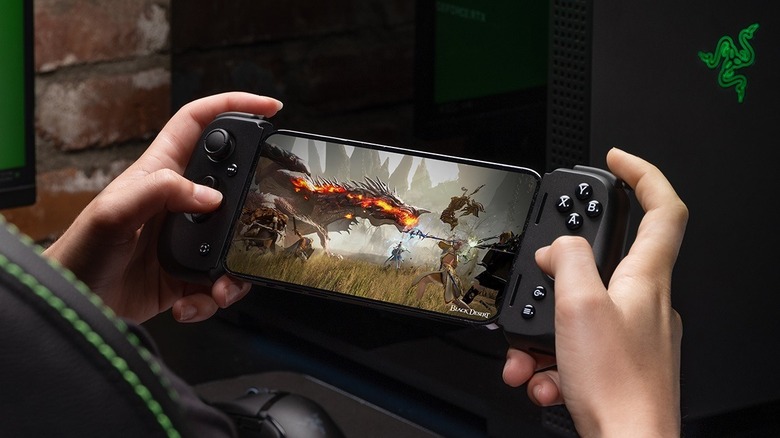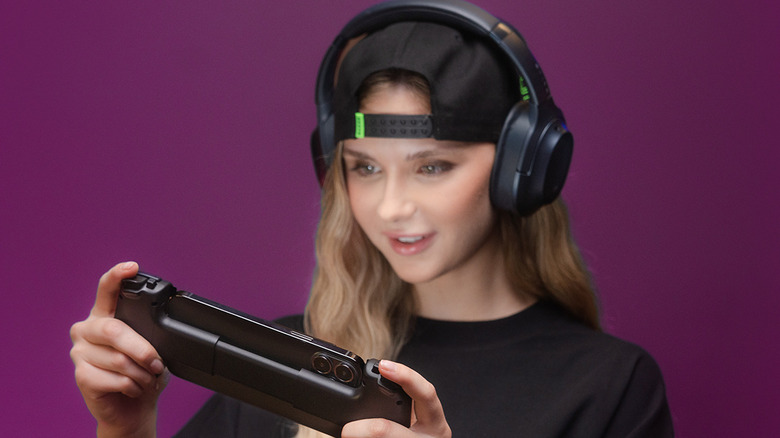Razer Kishi v2 For iPhone Gives iOS Gamers A Decision
Gaming no longer requires a beefy PC, laptop, or console. Many people these days use their smartphones as full-on gaming devices, and plenty of companies are quick to jump in to make that easier with a series of gadgets. This time, Razer has unveiled the Kishi v2, a universal mobile gaming controller made for all kinds of iPhones. It comes as a successor to the original Razer Kishi and arrives later than the Android version, which launched in July 2022. Is this controller good enough to beat Razer's competition, the Backbone One?
Equipping your iPhone with a Razer Kishi v2 makes it look almost like a Nintendo Switch, and that's probably the idea — the controller is meant to replace a gaming console. After all, modern iPhones carry plenty of processor and graphics power, so there's no reason why you couldn't use them to play some more serious mobile games — titles more like "Call of Duty" than "Candy Crush." Razer markets the controller as a device to play AAA games without having to compromise.
The new Kishi utilizes iPhone's Lightning connection which could make it pretty speedy, offering low latency and responsive controls. The device is compatible with all iPhones that run iOS 15.4 or later, so basically any iPhone after the iPhone 6s, as well as iPhone SE and even the iPod Touch. This is because it comes with an expansive bridge that adjusts to the size of your device.
Razer serves up a couple of upgrades
Comparing the Razer Kishi v2 to its predecessor reveals some upgrades, but it's not a very lengthy list. The new controller gets two extra shoulder buttons that can be mapped to anything you wish using Razer's proprietary Nexus app. Razer has also extended the list of compatible devices and added an extra button on the right side of the controller. All in all, it's not much, but it looks like the Kishi v2 might be a little more ergonomic and comfortable to use. Whether that's true remains to be seen. The iPhone Kishi looks virtually the same as the Android version, so gamers on both platforms are not missing out.
The device is priced at $99, which puts it at the exact same price tag as the aforementioned Backbone One. This might not be a great thing, though, because Backbone has received a fair amount of positive feedback, so it might turn out to be a tough enemy for Razer to beat. Backbone also has something that Razer Kishi v2 does not: a 3.5mm headset jack that could help gamers, especially those who want to wear a proper headset with a microphone. On the other hand, it's Razer — the company certainly has its fair share of loyal customers, so they might not stray regardless of the reviews either device will have gathered a while from now.

